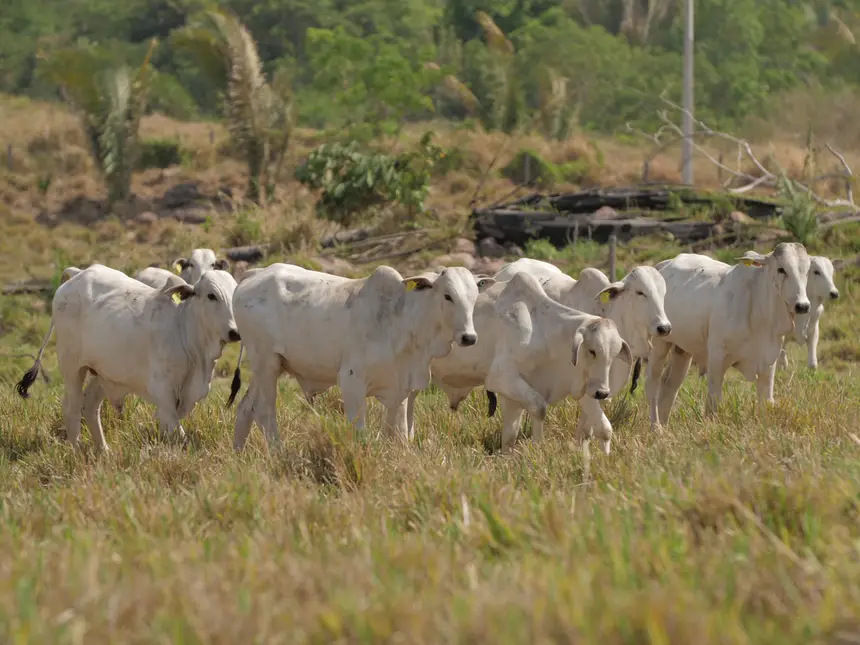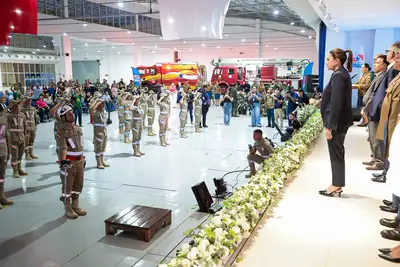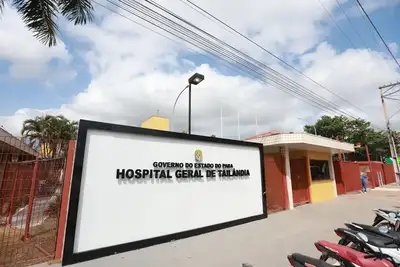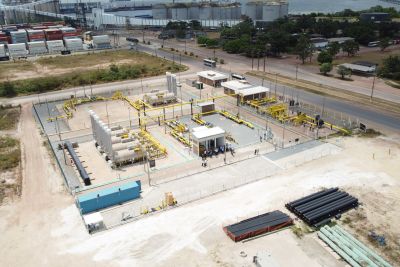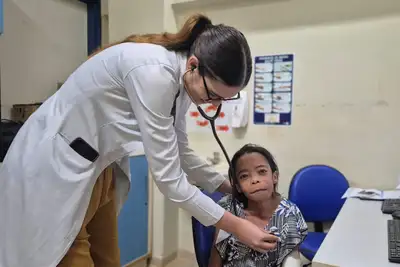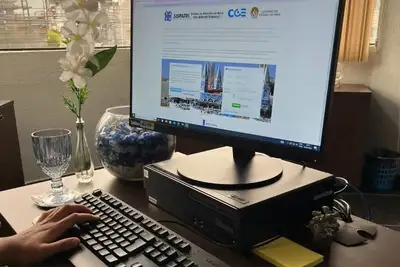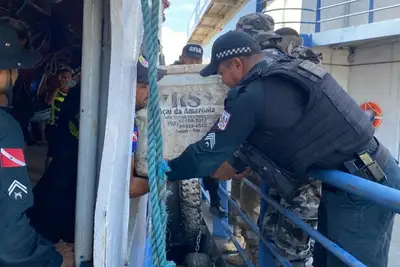Pará advances with pioneering animal traceability program
Using technology and sustainable practices, the initiative strengthens the beef supply chain and projects new markets for producers
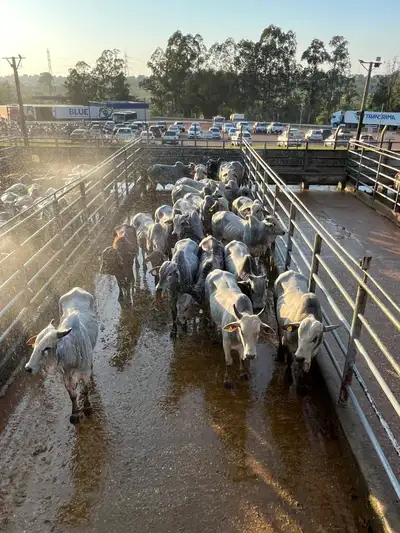
After the international recognition of a foot-and-mouth disease-free area without vaccination in May of this year, in France, the state of Pará took another important step for the beef production chain. Promoting the sanitary registration of cattle and buffaloes since 2024, the Individual Bovine Traceability System of Pará (SRBIPA) achieved a historic milestone with the first slaughter of animals identified by the Individual Bovine Traceability System of Pará (SRBIPA) in August. The batch, consisting of 20 properly registered males from a farm in Marabá, was sent to the JBS/Friboi slaughterhouse under federal inspection. The entire procedure was monitored by the platform, from the departure of the property to the slaughter, consolidating traceability as an effective part of the beef production chain in the state.
With this milestone, Pará advances in the implementation of the Sustainable Cattle Ranching and Individual Cattle Traceability Program, launched in 2023 during the 28th United Nations Climate Change Conference (COP28) in Dubai. Led by the State Government, through the Agricultural Defense Agency of Pará (Adepará), the State Secretariat for the Environment and Sustainability (Semas), and the Secretariat for Agricultural Development and Fisheries (Seaf), in partnership with the productive sector and partner institutions, the program introduced the SRBIPA, aiming to individually identify all cattle and buffaloes in transit starting in January 2026 and to reach the entirety of the state herd starting in January 2027.
Individual Animal Traceability
Identifying each individual in the herd is the first step towards a more modern, safe, and valued cattle ranching. The Individual Bovine Traceability System of Pará (SRBIPA) concentrates and manages the information generated in this process. The public policy, pioneering in the country, allows the producer to track the detailed history of the animals, preventing diseases and ensuring complete traceability from birth to slaughter.
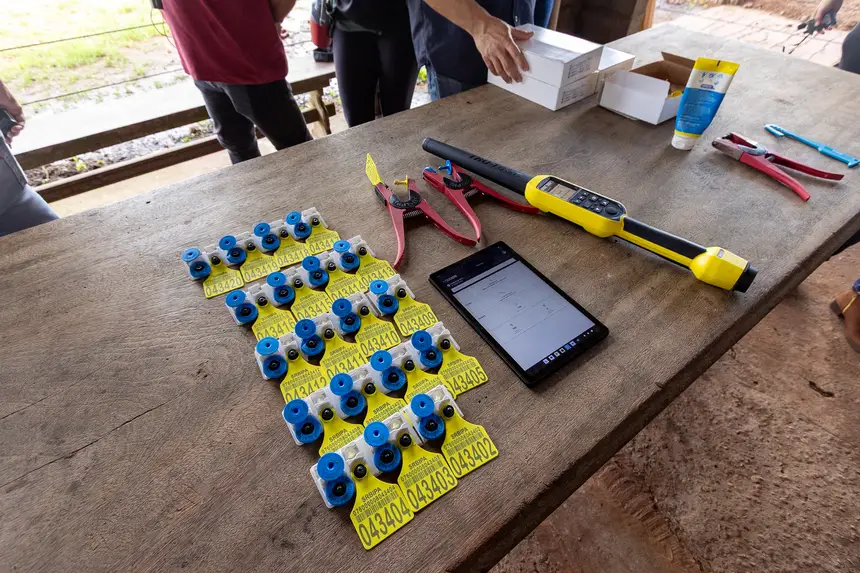
The identification process, known as “ear tagging,” applies two tags to each cattle or buffalo: one visual, yellow in color, and another electronic, blue in color, using radio frequency technology (RFID). This resource, already established in countries that have adopted traceability, works without internet and ensures accuracy in monitoring, using radio waves to identify different types of targets, including objects, plants, animals, among others.
The tags are provided free of charge by the Government of Pará to producers with up to 100 animals, who can contact Adepará in their municipality to join the system. In Altamira, Xinguara, Eldorado dos Carajás, São Geraldo do Araguaia, and Tucuruí, where cattle ranching is predominant, the agency has three contracted companies in partnership with The Nature Conservancy (TNC) to assist in identifying the animals.
According to Barbra Lopes, registration and traceability manager at Adepará, “with the implementation of traceability, animals are no longer registered in batches and are monitored individually, with a unique number that functions like a ‘CPF’. This control will bring more agility and precision in addressing diseases, strengthening livestock defense and contributing to a more efficient management of the state’s herds.”
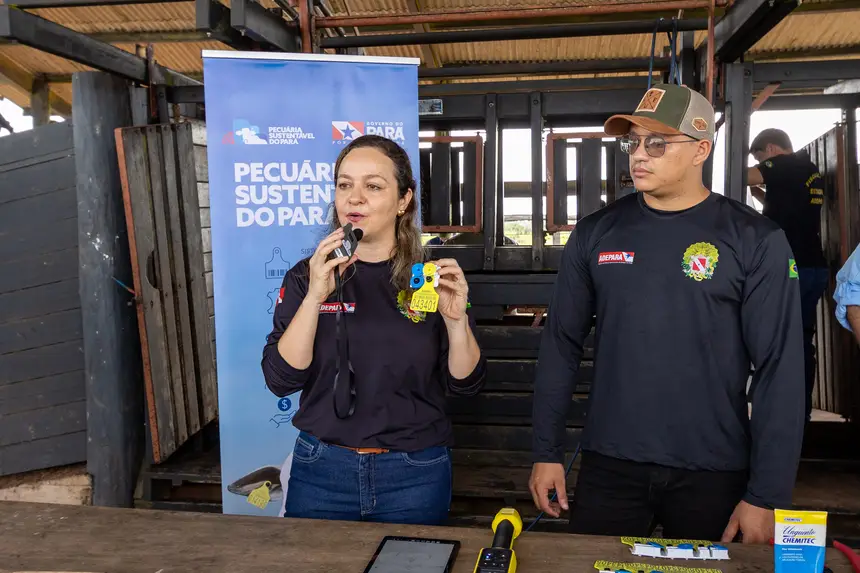
In transit, traceability for properties that have joined the SRBIPA occurs with the confirmation of departure from the origin location: the producer informs, in the Agricultural Management System (SIGEAGRO 2.0), the individual number of each head registered in the Animal Transit Guide (GTA), while the slaughterhouse confirms the arrival of the batch. Inside the industrial plant, slaughters are recorded by electronic readers, ensuring data accuracy also at the final destination and guaranteeing transparency and reliability at all stages of the beef production chain.
Sustainability and technology
In the Marajó archipelago, producer Joélcio Fernandes, from Salvaterra, has already incorporated technology into buffalo management. On his 138-hectare property, he maintains 53 animals and dedicates 50 hectares to environmental preservation, an example of balance between production and conservation. “The arrival of the system here in the region is very important for us who already use the tags to signal our animals. The system provides information on weight, vaccines, and all the sanitary control of the animal. It is a benefit to identify the quality, origin, and destination of each animal,” he evaluates.
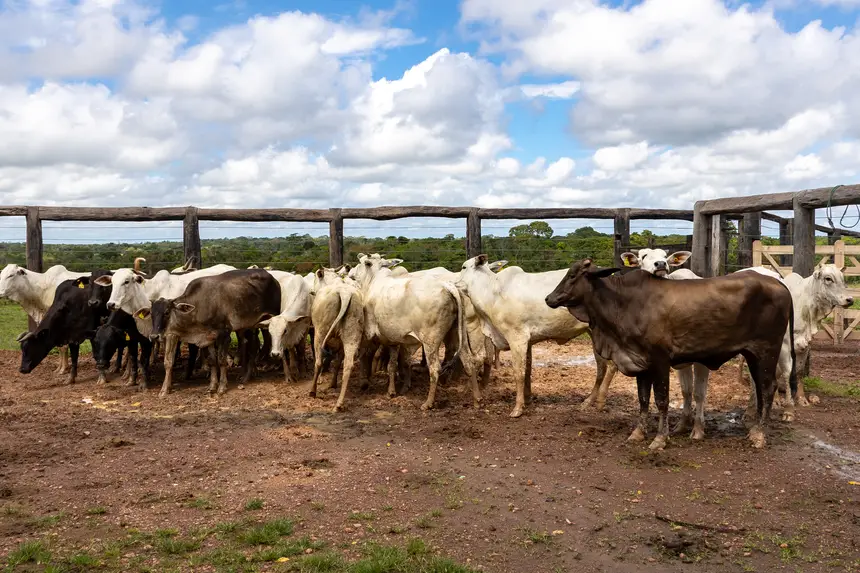
The management of the information is done by Adepará, which ensures data protection in accordance with the General Data Protection Law (LGPD). For the general director of the Agency, Jamir Macedo, “the traceability program of Pará places the state’s production at another level of organization and quality. The status of a foot-and-mouth disease-free zone without vaccination needs to be maintained, and traceability is decisive for that.”
Access to markets
In addition to sanitary safety and animal identification, the Sustainable Cattle Ranching and Individual Cattle Traceability Program guarantees access for rural producers in Pará to formal markets, promoting job creation, income, and support for families in rural areas, through the Commercial Requalification, provided for in the Conduct Adjustment Term (TAC) of Meat. The policy, established by the Government of Pará with several institutions, including the Federal Public Ministry, enables the return of producers with embargoed areas under the commitment of environmental recovery.
“We are clear that it is necessary to ensure access for producers to markets without leaving anyone behind. We continue to comply with the determination of Governor Helder Barbalho to advance in a sustainable development agenda with social inclusion. Traceability is a decisive step for Pará’s cattle ranching to reach more demanding markets and strengthen productive inclusion,” highlights the Secretary of the Environment, Climate, and Sustainability of Pará, Raul Protázio Romão.


